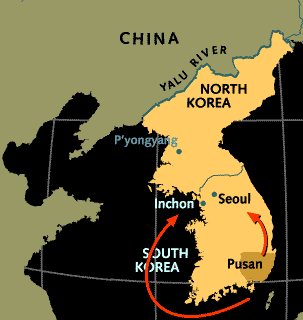Type Username Here
Not a new member
WWI:
Korean War:

We all know what happened after the Marines passed the baton to the Army in Mogadishu.
We all know the Marines have been given the toughest AOs in both Afghanistan and The Iraq War as well.
During World War I veteran Marines served a central role in the late American entry into the conflict. Unlike the Army, the Marine Corps had a deep pool of officers and NCOs with battle experience, and experienced a smaller expansion. Here, the Marines fought their famed battle at Belleau Wood, creating the Marines' reputation in modern history. While its previous expeditionary experiences had not earned it much acclaim in the Western world, the Marines' ferocity and toughness in France earned them the respect of the Germans, who rated them of stormtrooper quality[].
Between the World Wars, the Marine Corps was headed by Commandant John A. Lejeune, and under his leadership, the Corps presciently studied and developed amphibious techniques that would be of great use in World War II. Many officers, including Lt. Col. Earl Hancock "Pete" Ellis, foresaw a war in the Pacific with Japan and undertook preparations for such a conflict. Through 1941, as the prospect of war grew, the Corps pushed urgently for joint amphibious exercises and acquired amphibious equipment that would prove of great use in the upcoming conflict.
Korean War:
The Korean War (1950–1953) saw the hastily formed Provisional Marine Brigade holding the defensive line at the Pusan Perimeter. To execute a flanking maneuver, General Douglas MacArthur called on Marine air and ground forces to make an amphibious landing at Inchon. The successful landing resulted in the collapse of North Korean lines and the pursuit of North Korean forces north near the Yalu River until the entrance of the People's Republic of China into the war.

We all know what happened after the Marines passed the baton to the Army in Mogadishu.
We all know the Marines have been given the toughest AOs in both Afghanistan and The Iraq War as well.





 It's too early for this but I'll have to respectfully disgaree.
It's too early for this but I'll have to respectfully disgaree.